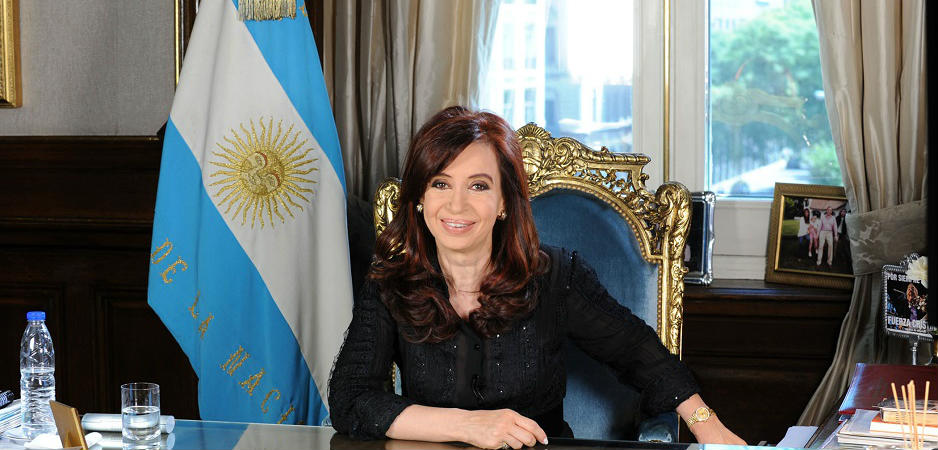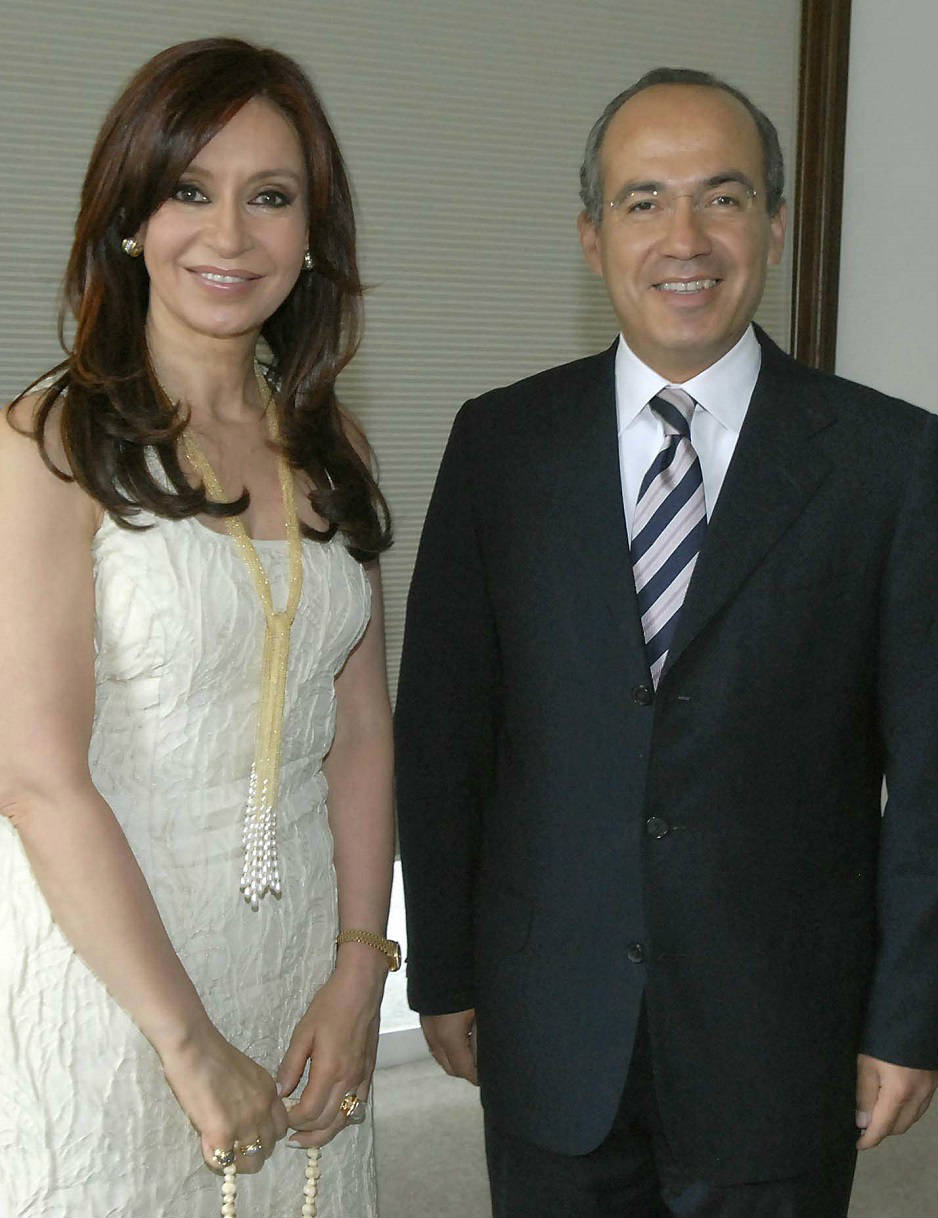This week, three Latin American countries are under the spotlight.
For years, countries in Latin America were ruled by military dictators. Finally, democracy is taking root. Now, these countries are facing the perpetual questions that every democracy has to confront. How does a democracy further public interest when there are contending interests jockeying for power? How do political parties find funding to fight elections? How do voters ensure that politicians who get elected do not line their pockets or further the interests of those who fund them? This week, three Latin American countries confronted these questions in all their starkness.
In Brazil, the long-running Petrobas scandal claimed its biggest scalp. Maria das Graças Foster, its chief executive, has resigned along with five other senior colleagues. Petrobas is a state-controlled oil giant that has long had a cozy nexus with politicians. The recent scandal pertains to claims that Petrobas asked construction companies to cough up billions of dollars. Some of this money found its way to political parties, including the Workers’ Party. Both President Dilma Rousseff and Luiz Inácio Lula da Silva, her predecessor, belong to this party and have been excessively favorable to Petrobas. The question of propriety and public interest will play out messily in Brazil over the coming days.
In Mexico, it is President Enrique Peña Nieto himself who faces scrutiny. He, his wife and his finance minister are under pressure for allegedly deriving inappropriate if not illegal benefits from contractors. In November, a news website run by Carmen Aristegui, a leading Mexican journalist, revealed that Grupo Higa had built a mansion for Peña Nieto and his wife, a former soap opera star. The mansion is valued at $7 million, a bit more than 1% of the $652 million contracts Grupo Higa won from 2005-11 when Peña Nieto was governor of Mexico State. It turns out that Finance Minister Luis Videgaray has also purchased a large weekend home from Grupo Higa for a suspiciously low price. People suspect that this is payback for the $3.7 billion high-speed rail contract that it recently won as part of a Chinese-led consortium.
Peña Nieto announced an investigation into the matter but complained when it was not met with applause. Pent up fury broke out against him, with #YaSeQueNoAplauden (I know that they don’t clap) becoming the trending topic on Twitter. Already, much of the country is furious with the government. In 2014, the police intercepted 43 student protesters who later went missing. It brought to a head widespread dissatisfaction with corruption, which many believe is the root cause of the lawlessness and violence afflicting Mexico. Mexicans see Peña Nieto as being unconcerned about corruption or violence that is blighting their lives. The truth is that state structures are rotten. The police are often worse than drug lords and courts simply do not function. Mexico is a young democracy that needs vigorous debate and institutions that work. Until 1997, Peña Nieto’s party ruled the country for 71 years. The fact that he is being hauled over the coals is a jolly good thing for Mexican democracy.
Latin America is known for melodramatic soap operas, but all of them pale in comparison to events unfolding in Argentina. In January, prosecutor Alberto Nisman was found dead. He was investigating the 1994 bombing of a Jewish community center in Buenos Aires. Nisman had accused President Cristina Fernández de Kirchner of covering up Iran’s role in the bombing. This week, it emerged that he had drafted a warrant for the arrest of Kirchner. This is Argentina and so the plot is thickening. A former spymaster wanted in connection with Nisman’s death has gone missing.
The truth in such matters is rarely clear and never simple. However, in most decent democracies, inconvenient prosecutors and grizzled spooks do not usually die or go missing. Argentina is blessed by the bounties of nature with fertile soil and had the tenth highest per capita income in 1913. Decades of profligate Perónist populism has decimated the country’s economy. Concentration of power under the Kirchner couple has broken the spirit of a country that has never been able to shrug off the shadow of caudillos ruling the roost. Democracy is not deep in Argentina, and the country will remain a cursed place until it develops institutions that function.
In the Middle East, the Islamic State (IS) beheaded a Japanese journalist and burned alive a Jordanian fighter pilot. It released gruesome videos of both events. Some claim that these are brilliant if inhuman tactics by an insurgent group that lacks the men, money and equipment of state actors. By shocking and scaring its enemies, it saps their will and draws new recruits. Others hold that this gratuitous violence is a product of irrational fanaticism. It will lead to a backlash and cause the eventual downfall of IS. Already, the burning of the pilot has caused outrage. Jordan executed two suspects in retaliation. Its pilots unleashed air strikes on IS in both Syria and Iraq. More Jordanians support the fight against IS. Yet many are scared and a long drawn out battle awaits.
In Africa, Boko Haram, a jihadist group that has sworn allegiance to IS, launched its first attack in Niger. This followed close on the heels of its slaughter of 70 people in a Cameroonian town. Boko Haram has killed thousands and displaced millions in the northeast of Nigeria. This week, troops from Chad and Cameroon attacked Boko Haram bases with support from French jets. They claimed to have killed 250 militants, but it is clear that the group can punch back. Colonial state structures in West Africa seem to be crumbling in the face of millenarian ferocity, setting the stage for a protracted conflict.
In Europe, French President Francois Hollande and German Chancellor Angela Merkel are meeting Russian President Vladimir Putin as hostilities escalate in Ukraine. The pro-Russian rebel leader has announced that he would be expanding his militia to 100,000 men. It is an open secret that Russia is arming the rebels and testing new weapons. Moscow is increasing its military expenditure even as its economy is plummeting and its population is declining. Worryingly, it is increasing its nuclear arsenal. Russian fears of decline and dismemberment have been exacerbated by US actions. With US President Barack Obama sticking with his Asia Pivot policy, indebted and aging European states might find that a raging civil war to their east might be too hot to handle. Hence, Hollande and Merkel, who thoroughly dislike each other, have teamed up to visit Moscow in the hope that Putin can be persuaded to make peace.
You can receive “The World This Week” directly in your inbox. Please click here to subscribe. You can also sign up to our “Daily Brief” on the same form. Meanwhile, please find below five of our finest articles for the week.
[seperator style=”style1″]Iceland Will Not Join the European Union[/seperator]
An exclusive Fair Observer interview with former Icelandic Foreign Minister Jon Baldvin Hannibalsson.
We usually don’t find it making the headlines, but Iceland is a nation that has struggled with the question of whether to join the European Union (EU) or not. It has historically played a significant role in regional developments and made important contributions to security and democracy in Europe.
Along with Haiti, Mauritius, Monaco, Panama and Vanuatu, Iceland is one of few countries that have no standing army but a limited military. It has been Iceland’s policy to not maintain an army since 1869, however, it is an active and founding member of NATO and joined the Atlantic coalition in 1949.
Iceland is an official candidate to join the EU, even though its former foreign minister, Jon Baldvin Hannibalsson, believes the Nordic country will not unite with the European alliance in the foreseeable future. Read More
[seperator style=”style1″]US Intervention in Ukraine Risks Further Conflict[/seperator]
The US is considering whether to arm the Ukrainian military, however, such a move could provoke further escalation of the conflict.
Despite numerous attempts to enforce the ceasefire agreement reached in Minsk in September 2014, the separatist conflict in eastern Ukraine is deteriorating. On January 23, Alexander Zakharchenko, leader of the self-proclaimed Donetsk People’s Republic, rejected any prospect of a truce, and the separatists’ unwillingness to enter negotiations forced the abandonment of peace talks in Belarus a week later.
Kiev has echoed a separatist pledge to conduct a major recruitment drive, as separatist forces continue their assault on the city of Debaltseve. The city is strategically located between the separatist strongholds of Donetsk and Luhansk, and its fall would represent a major victory for the pro-Russia forces. The level of the separatists’ territorial ambitions was perhaps indicated by their brief attack on Mariupol on January 24, a city that lies on the road to Russian-controlled Crimea. Read More
[seperator style=”style1″]West Beats the Drum for War, While Russia Plays Games in Ukraine[/seperator]
Arming pro-Kiev forces would be a huge mistake, argues Adam Swain.
In recent weeks, eastern Ukraine’s Russian-backed rebels have won several military victories on the battlefield in the Ukrainian Donbas. First, they captured the virtually destroyed Donetsk airport, then they pushed back the front lines, taking more territory. Now, they look set to secure Debaltseve, strategically located between the rebel-held cities of Donetsk and Luhansk.
The warfare has taken a terrible toll on Ukrainians on both sides of the “demarcation line.” More than 5,300 people have now been killed and over 1 million displaced. The Minsk Agreement of September 2014 has obviously failed.
It is clear the Russian-backed rebels want to fight Ukrainian forces to carve out a viable statelet in the east of the country. The prime minster of the Donetsk Peoples’ Republic (DNR), Aleksandr Zakharchenko, has for months declared his intention to retake cities overrun by Ukrainian forces in July 2015, such as Slavyansk and Kramatorsk. Read More
[seperator style=”style1″]American Sniper and The Interview: Hollywood’s “Furriner” Problem[/seperator]
In films like American Sniper and The Interview, Americans are the heroes and “furriners” are the targets — an undifferentiated group of people so alien that they’re practically subhuman.
I was waiting to buy a ticket to see the new film American Sniper when the guy next to me provided a capsule review. It was a fantastic movie, he told me. The main character, Chris Kyle, was a great guy, and the film really showed what the war over there was like. “And the Taliban are evil,” he added. “They were just doing terrible things, using kids to throw bombs and stuff.”
The fellow told me that the movie had inspired him to look up more information about Chris Kyle on the Internet and learn about his tragic death. But despite this additional research, he still believed that Kyle was fighting against the Taliban. In fact, American Sniper is about Kyle’s four tours in Iraq. Read More
[seperator style=”style1″]Three-Person IVF: Science Shows Ethical Questions Remain Unanswered[/seperator]
Britain could become a pioneer in helping those with mitochondrial disease.
Diseases caused by genetic mutations in the mitochondria — the powerhouses of the cell — can be disabling or even deadly. That is why mitochondrial replacement therapy (MRT), otherwise also known as three-person IVF (in vitro fertilization), is being touted as a much-needed option for women carrying mitochondrial mutations.
Most genes in a cell are trapped in the nucleus, but a tiny fraction are present in the mitochondria, too. When eggs are fertilized, the genes in the nucleus of the egg combine with the genes in the nucleus of the sperm to create a new cell. However, mitochondrial genes do not undergo this mixing and are passed on from mother to child.
The idea behind three-person IVF is to find a way of replacing the mitochondrial genes in an affected egg cell before they are passed on to the child. Read More
We bring you perspectives from around the world. Help us to inform and educate. Your donation is tax-deductible. Join over 400 people to become a donor or you could choose to be a sponsor.
The views expressed in this article are the author’s own and do not necessarily reflect Fair Observer’s editorial policy.
Photo Credit: Presidency of Argentina / Flickr
Support Fair Observer
We rely on your support for our independence, diversity and quality.
For more than 10 years, Fair Observer has been free, fair and independent. No billionaire owns us, no advertisers control us. We are a reader-supported nonprofit. Unlike many other publications, we keep our content free for readers regardless of where they live or whether they can afford to pay. We have no paywalls and no ads.
In the post-truth era of fake news, echo chambers and filter bubbles, we publish a plurality of perspectives from around the world. Anyone can publish with us, but everyone goes through a rigorous editorial process. So, you get fact-checked, well-reasoned content instead of noise.
We publish 2,500+ voices from 90+ countries. We also conduct education and training programs
on subjects ranging from digital media and journalism to writing and critical thinking. This
doesn’t come cheap. Servers, editors, trainers and web developers cost
money.
Please consider supporting us on a regular basis as a recurring donor or a
sustaining member.
Will you support FO’s journalism?
We rely on your support for our independence, diversity and quality.













Comment